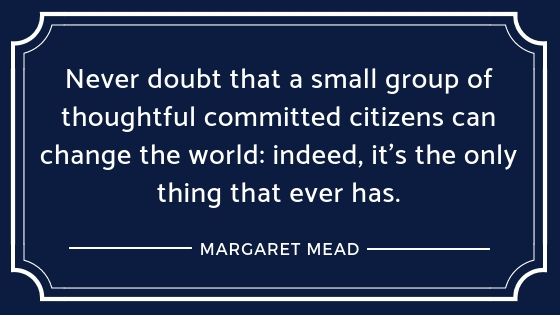We are all taught and conditioned by society that helping those in need is kind and kindness is rewarded. So, when we want to help the poor, we appease our consciences by giving them charity, shrugging off our responsibility. We never address the root cause of the problem, rather perpetuate the vicious cycle of poverty by robbing the unfortunate of the initiative to better their circumstances. How can a person accustomed to receiving monetary help ever find the drive or the means to drag themselves out of this situation?
The Shift from Donations to Investment
To radically shift the paradigm of charity, it is crucial to move away from short-term monetary donations to long-term investment in the futures of those who need assistance. I strongly believe that the only way to uplift this stratum of underprivileged people and help them escape the morass of poverty is educating them and broadening their world view, so they can get better jobs, start off businesses, and improve the economic conditions of their families. Your charity is better re-purposed as an investment in their future—an investment in humanity, for a future where every member of society is accomplished enough to contribute. A receiving hand will then not be a perpetually outstretched hand but become a productive, contributing member of society.

Lack of access to a decent education is a problem that plagues not only underdeveloped nations but many states in developed nations, with overflowing classrooms, poorly and underpaid equipped staff, and lack of resources. This creates an insurmountable handicap that afflicts the underprivileged all their lives.
Giving them means to educate themselves paves the path towards socioeconomic independence and self-sustainability of their families, transforming them from belonging to a beneficiary segment of society to empowered individuals with the opportunity to participate in the greater world. Not only this but education creates an awareness about rights and duties, good and evil, nourishing more socially conscious citizens who are less likely to fall into a life of crime and abuse. This investment in humanity will yield better human beings with a more positive outlook, who believe in assisting each other and giving back to society. It will also generate a more positive outlook, with every underprivileged individual motivated to at least strive for bettering the circumstances of his/her birth.
How Can Your Charity Become an Investment in Humanity?
Your charity will serve as a sponsorship fund to educate an underprivileged child unable to get a decent education and/or learn vocational skills due to lack of financial means. It will cover tuition fees, books, uniforms, supplies, and all the other necessary accompaniments of a good education. So, you will invest in a child’s future—radically changing it for the better. Your investment in humanity today will reap compound returns in the future—returns for you personally and for the society in the form of a greater percentage of productive individuals.
Become an Angel Investor
We’re thus restructuring charity as an angel investment for the underprivileged. In such scenario, you will have a vested interest in the success of the investee. You can structure the terms of the investment in two different ways. First, you can bear the expenses of educating the child with the understanding that once the child has completed the education, they will work at a place of your choosing for a predefined period. This will ensure that the education is put to good use in a position that benefits you as well. The child will also have an assured position and hence a secure future, provided he/she completes the education with decent grades. This benefit of guaranteed employment will act as another inducement for those families considering this option for educating their children.
Second, the invested amount can be a loan to the investee who will be obliged to return the principal amount with a small markup for the deferred payment terms. This markup can also be tied to the earning potential of the sponsored child, having accounted for fulfilling necessary expenditures first. The merits of this approach are that the sponsored child can apply for employment anywhere and you will get back your investment in a shorter period of time.
You can also go for a combination of both, with both parties agreeing on fair and equitable terms.
These terms ensure that the charity investment is exactly that and not a free payout. The money will then be utilized in the manner intended, and this will provide the additional impetus to guarantee better academic performance and brighter work prospects.
It will be a long-term investment and will have as much to do with the child as his/her parents or legal guardians since the child will be a minor. Therefore, you will choose the family and the child and mutually agree on the terms of the partnership.
Risks and Returns
As with any investment, there are risks attached to this one too, such as the child not being able to complete his/her education due to extenuating circumstances such as incarceration or death. Since you will have invested in families vetted for suitability, the chances of such a situation are relatively remote. A more valid concern may be that the investee is unable to get employment, or the wages or salary are barely enough to cover basic needs, leaving nothing over to return the investment. While not desirable, this is still immeasurably preferable to giving charity to the poor with no investment in the betterment of their future. At least this way, the investee child will have grown to be a responsible member of society, capable of contributing positively to the betterment of humanity.
Using charity as an investment in the future of humanity will have a spiraling effect, with each well-educated—previously underprivileged—child improving the circumstances of his/her family, helping other family members find better prospects, consequently freeing their future generations from the shackles of poverty. The child and his/her family will also contribute to the economy, directly or indirectly creating more opportunities and job prospects for others, compounding the benefits of your investment today.
Isn’t this a much more satisfying way of utilizing your charity—investing in the future of humanity?
Written by Shahzad Yaqoob,
27th September, 2018








